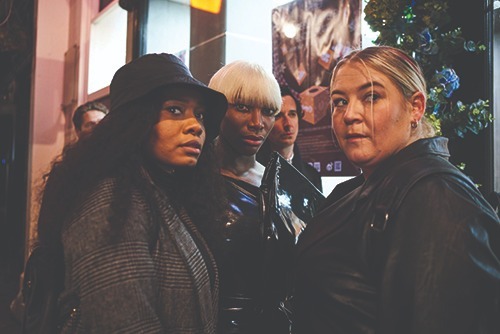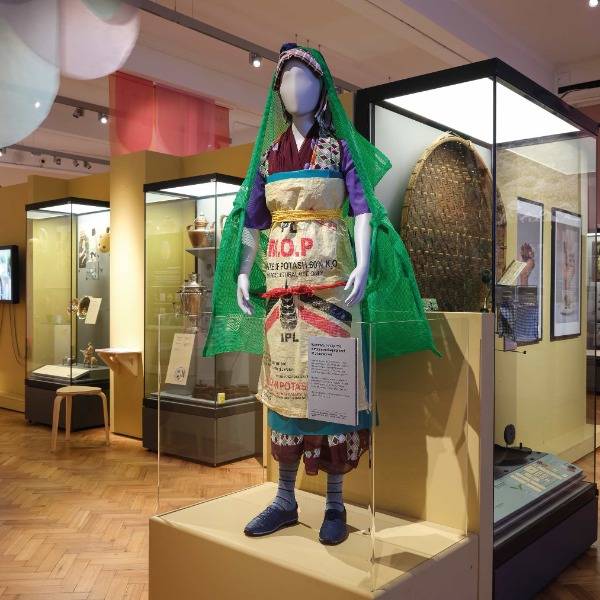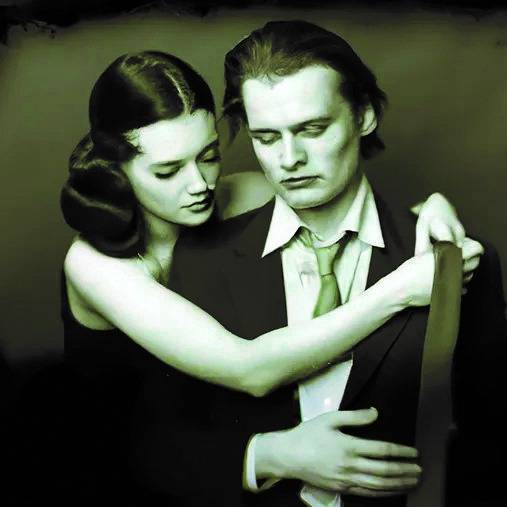
This article is a preview from the autumn 2020 edition of New Humanist
There’s a quiet moment near the end of the second episode of I May Destroy You, Michaela Coel’s 12-part BBC drama about trauma and memory, that has stayed with me for weeks. Coel’s character, Arabella, is taking a cigarette break outside a sexual assault unit after a tough few hours inside. Still wearing a hospital gown under her cardigan, she sits next to another, older, woman dressed in the same garb. “First time?” she asks, seeing Arabella clock the blood-soaked patch of fabric over her thigh as she nods. The stranger cocks her head sideways sympathetically. “Mad, isn’t it? How everything’s beautiful, and nothing hurts.”
This line neatly sums up the worldview that Arabella has just been forced to abandon. At the start of the series, she’s an up and coming young writer living a carefree life in London. Her first book, Confessions of a Fed Up Millennial, sold enough copies that she’s regularly recognised and asked for selfies by fans. When the series opens, she’s just got back from Italy, where instead of working on her new manuscript, she was enjoying a sexy fling. Now, she has one night to finish the book, so she locks herself in her agent’s office and stares at the blank screen.
Her focus doesn’t last long and soon she’s off on a raucous night out with friends, drinking and dancing at a bar called, appropriately enough, Ego Death. Although Arabella is supremely laidback, there’s tension simmering beneath the surface, and the viewer suspects that something is coming to shatter her as she knocks back shot after shot.
These sequences are beautifully composed, with the camera tracking Arabella’s descent into intoxication via blurry neon lights and wobbly focus. Finally, she stumbles to the door and sticks her head out into the night air. At that moment the screen blanks out and Arabella comes to, back in the office, having written pages and pages of text she can’t remember typing.
The subsequent episodes see Arabella investigate the gap in her memory to find out what happened that night. She checks her bank records, interrogates her friends and follows up leads just like a detective (indeed, at one point another character accuses her of pretending she’s in CSI).
The narrative perspective is so cleverly handled, though, that the viewer is already several steps ahead. We see the still-bleeding cut on her forehead and her glazed-over expression the morning after. She has a brief flashback of a man’s face and torso seen from below, thrusting and grunting, and we know what it signifies long before she does. The destruction of her beautiful world is effected in a single night: Arabella’s drink was spiked and she was assaulted.
I May Destroy You handles this heavy subject matter with a rare delicacy and grace. There are no gratuitous shots of scantily clad rape victims, nor any of the other objectifying tropes so familiar from countless police procedurals and true crime shows. Arabella remains the centre of her own story.
Even the sequences at the police unit are subtle, with the sputtering hum of a film projector soundtracking shots of Arabella’s grazed knees and her bruised thigh being photographed as evidence. The police interviewer leads her very gently through the fragment of memory, allowing her to realise for herself that the reason she’s seeing this man from below as he pounds away is because she’s his victim. It’s only at this point that Arabella catches on to what the viewer has known already for nearly an entire episode. At that moment of revelation, all she can do is hide inside her cardigan and cry.
In I May Destroy You, Michaela Coel has created something new within the existing parameters of television drama. She wrote the whole series and directed the majority of the episodes, as well as portraying the central character. It’s partially a memoir, based on her own experience of being drugged and assaulted while working late on scripts for her Channel 4 series Chewing Gum. It’s also a thrilling whodunnit, with Arabella digging deep into her own memories and friendships to uncover the truth of what happened during her blackout. On top of that, it’s a meditation on narrative and control, in which Coel writes about a writer struggling to process a profound and sudden loss of agency.
There are layers and layers within each episode, as Arabella’s story intersects with those of her friends. There’s Simon, the philandering City hotshot who has his own reasons for keeping Arabella in the dark. Best mate Terry is a model going to castings for “feminist beauty campaigns” and keeping a straight face when white directors ask if her hair is real. And confidante Kwame is supportive and present throughout, while also secretly swiping through potential dates on his phone. Coel’s characters are nuanced, none of them wholly good or bad.
It matters, too, that the vast majority of this cast are black. If subtly told stories of sexual assault are rarely to be seen on television, then those featuring black women are virtually non-existent. British television is vastly unrepresentative of the people who watch it, and where shows by people of colour do get commissioned, they are too often part of a superficial diversity push rather than a genuine attempt to widen the pool of talent that is funded. Arabella’s circle of black millennial friends living successful lives in London is a rare sight on the small screen, with parts for black actors being far more common in shows about violence, poverty or gang conflicts.
Behind the scenes, Coel is working fearlessly to change all of this. She’s 32 now and has faced racism and discrimination throughout her career, including from an acting coach at drama school who repeatedly told her she was too “angry and aggressive”. She struggled to get Channel 4 to name her as a producer on her wildly successful show Chewing Gum, which was based on her own experiences as a teenager growing up on an East London council estate and enthusiastically attending a Pentecostal church.
In 2018, she became the first black woman to deliver the prestigious James MacTaggart Memorial Lecture at the Edinburgh International Television Festival. She used the platform to call out the industry for its lack of transparency and structural discrimination towards writers and actors who aren’t white or posh. “I’ve never accused anyone at work of racism but I’ve been urged to understand someone ‘isn’t racist’ on every job I’ve acted in since, just by pointing out possible patterns, tendencies,” she said. She talked about her own sexual assault and how the production company she was working with were reluctant to push back her deadline after she was raped.
After the speech was broadcast, executives talked a good game on mending their ways, but when Coel began pitching the series based on the events she had revealed in the speech, she found that not much had shifted. Netflix reportedly offered her $1 million upfront for I May Destroy You but in return demanded all rights to the show, meaning that Coel would have no say over any subsequent distribution or adaptation. She declined and eventually took the idea to the BBC, who promised her full control and a much better deal. Asked recently about what it’s like to turn down a million dollars, she simply said: “I don’t care.”
Later on in I May Destroy You, Coel’s character Arabella denounces an assailant at a fancy event and her words spread all over social media, earning her a kind of celebrity recognisable from the heady early days of the #MeToo movement. Arabella sits in bed scrolling through all the approving comments. She plots how to turn this moment into another step in her career, uncertainty etched into the lines of her face. With I May Destroy You, Coel has turned her trauma into art, but she’s still not sure whether it was the right thing to do.

